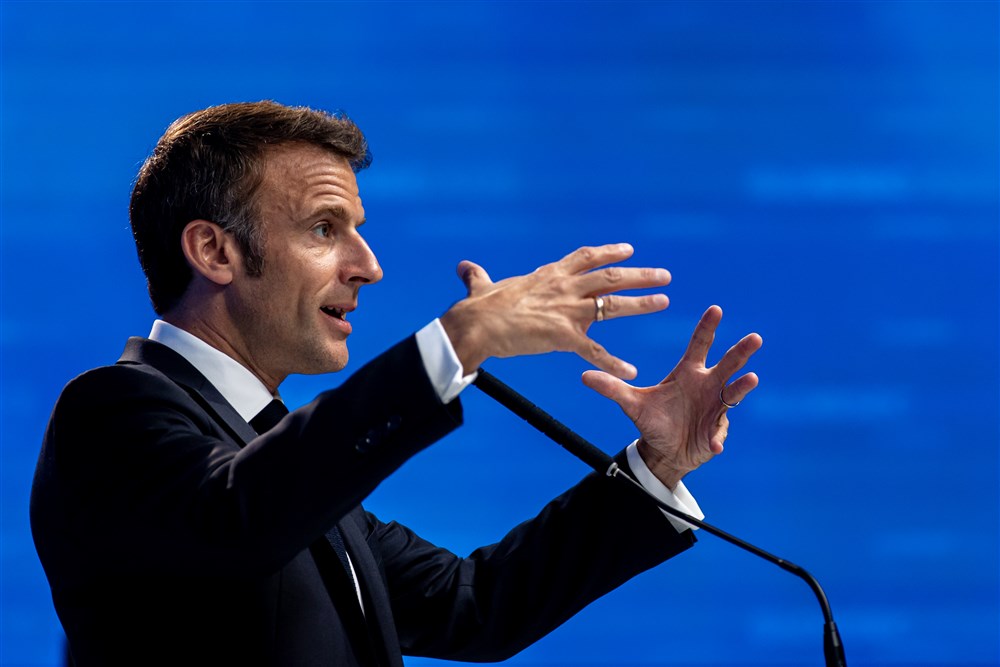French President, Emmanuel Macron, took a decidedly green turn at the Summit for a New Global Financial Pact in Paris on June 22, stating no country should have to face a dilemma over “reducing poverty and protecting the planet”.
In his opening speech at the event that runs over two days from Thursday, host Macron emphasised the necessity for a “public finance shock” to combat poverty, reduce greenhouse gas emissions and preserve nature.
He said the current European and global financial system was not sharp enough to tackle the challenges facing the planet.
The French president noted that there was “a lot of money” that could be accessed but not necessarily for initiatives furthering the “progress of the planet”.
“Policymakers and countries shouldn’t ever have to choose between reducing poverty and protecting the planet,” Macron said.
“We have a financial system that is the fruit of a past consensus [that] is, no doubt, no longer moving fast enough, which is no longer entirely appropriate and which needs to be realigned with our objectives.”
Réduire la pauvreté ou protéger la planète : on ne doit pas avoir à choisir. C’est en même temps que nous allons relever ces deux défis. pic.twitter.com/8npCEiu9xj
— Emmanuel Macron (@EmmanuelMacron) June 22, 2023
France sees the Paris summit as a ‘platform for ideas’, coming ahead of a round of major economic and climate meetings later this year. Macron has already said that a pledged $100 billion a year in climate finance for ‘poorer nations’, a promise made at the Copenhagen version of the gathering in 2009, might be reached this year.
Perhaps ironically, however, an internet activist who tracks private aircraft and calculates their emissions, noticed that Macron took a helicopter to travel just 20 kilometres to the Paris summit. To make matters worse, the chopper had to fly in for that short trip from the French city of Brest, situated around 600 kilometres from Paris. According to the activist, the whole affair resulted in three tonnes of CO2 emissions.
Vous étiez choqués par le trajet de 20km en helicoptere, qui a émis ~210kg de CO2 ? Plus grave : l'hélicoptère est basé à Brest, et a donc fait l'aller-retour pour le président. Bilan : plus de 3 tonnes de CO2. pic.twitter.com/1VUiX6DVXC
— laviondebernard (@laviondebernard) June 22, 2023
The Paris meeting is co-organised by France and India, with the latter holding the presidency of the Group of 20 (G20) this year. The G20 is an intergovernmental forum made up of 19 countries and the European Union, all focused on issues related to the global economy, such as international financial stability and the environment.
António Guterres, the Secretary-General of the United Nations, is also in Paris for the summit, as are Olaf Scholz, Chancellor of Germany, Ursula Von der Leyen, President of the European Commission and Mia Mottley, Prime Minister of Barbados.
US Secretary of the Treasury, Janet Yellen, is also in attendance. She said Washington will “press” the creditors of poor and developing countries to take part in negotiations to restructure their debts.
The Paris meeting is designed to align various agendas such as climate change, international development and public debt, and to propose innovative solutions to these challenges. The organisers say countries in the global south, which produce relatively less pollution than those elsewhere, are the most threatened by the current climate crisis. That could further widen the economic gulf between those nations and richer countries, exacerbating the situation.
In Paris, the hope is to update the international financial architecture that emerged from the Bretton Woods agreements in 1944 with the creation of the International Monetary Fund (IMF) and the World Bank (WB). Developing countries are finding it difficult to access available financing, despite their immense needs in terms of coping with nature change and escaping from poverty, while freeing themselves from fossil fuels and helping to preserve the climate.
What is proving a popular idea at the summit is a ‘maritime taxation’, an international tax on carbon emissions caused by shipping. World leaders are also discussing other forms of taxation, as well as institutional reforms, restructuring the debts of poorer countries and strengthening the role of the private sector.
In the past 3 years, 120 million people have slipped into extreme poverty.
And climate change is hitting the world harder than ever before.
We need a new Global Financing Pact.
The EU is ready to play its part, with #GlobalGateway ↓ https://t.co/8J0NmJeFZi
— Ursula von der Leyen (@vonderleyen) June 22, 2023





